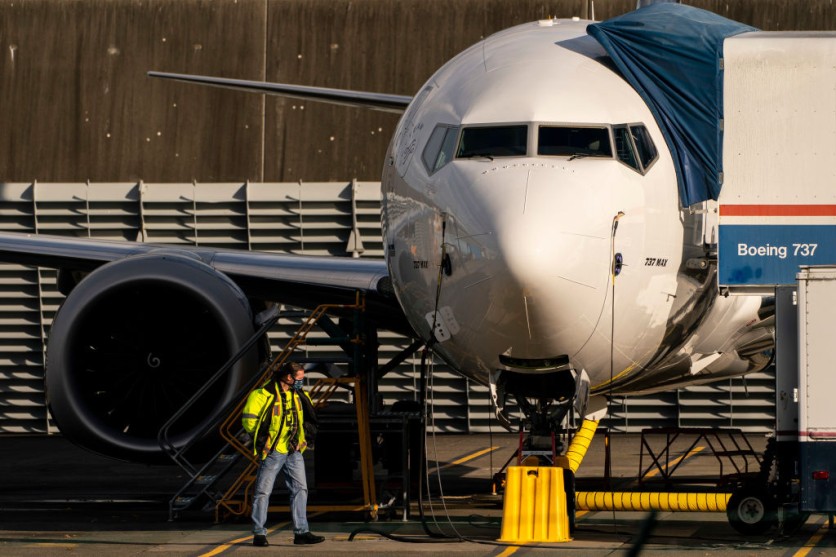Boeing's recent announcement revealed the company's inability to meet its 737 Max delivery target for this year, a setback in its plans.
Boeing CEO Dave Calhoun conveyed this news in a press release that offered an update on the firm's third-quarter results.
Boeing Still Optimistic Despite Challenges
Known for its cutting-edge technology, the 737 Max aircraft series incorporates significant advancements such as more fuel-efficient engines and improved aerodynamics.
Interesting Engineering reported that these innovations make the 737 Max planes more cost-effective and environmentally friendly, setting them apart from other aircraft in the aviation industry.

Despite challenges, Boeing remains resolute in its commitment to recovery and growth. Calhoun's message to Boeing employees conveyed a sense of optimism, emphasizing that the company continues to make progress despite the obstacles encountered during the third quarter.
Read Also : Boeing, Kratos to Develop Bolt-On Kit That Turns 'Dumb' Bomb Into Precision Cruise Missile
Boeing Long-Term Recovery Plan
In the statement, Calhoun said Boeing's long-term recovery plan remains on track. This year, Boeing aims to deliver approximately 375 to 400 737 Max aircraft. This figure is slightly less than the original estimate of 400 to 450 before Boeing identified quality issues with two distinct fuselages supplied by supplier Spirit AeroSystems.
These concerns led to an adjustment in the delivery target. Calhoun clarified that these quality issues should not be seen as signs of oversight but rather as a result of Boeing's improved quality control processes.
He emphasized the importance of the company's culture, which includes rigorous inspections and the commitment to identifying and rectifying non-conformities from the past.
Despite a third-quarter net loss of $1.6 billion, Boeing's financial goals remain ambitious, targeting between $3 billion and $5 billion in free cash flow for the year.
These objectives reflect Boeing's determination to navigate the challenges it faces, deliver on its commitments, and maintain its position as a key player in the aviation industry.
The 737 Max series faced a worldwide grounding in March 2019, prompting Boeing to engage in close cooperation with aviation authorities to address the issues affecting its aircraft.
Multiple solutions were devised to enhance the safety of the planes, involving a range of adjustments and software enhancements, along with additional pilot training.
Following a comprehensive re-certification process that Boeing willingly undertook, the 737 Max was granted approval to recommence operations in several countries in late 2020. This marked a significant milestone in the aircraft's journey to regain trust and re-establish itself in the aviation industry.
The Guardian reported that a 737 Max 8 aircraft named Lion Air Flight 610 tragically plunged into the Java Sea shortly after departing from Jakarta on October 29, 2018, resulting in the deaths of all 189 individuals aboard.
This was followed by another tragic event on March 10, 2019, when Ethiopian Airlines Flight 302, also a 737 Max 8, crashed after taking off from Addis Ababa, Ethiopia, leading to the tragic deaths of all 157 passengers and crew members.
These two catastrophic incidents raised significant concerns regarding the aircraft's flight control system, particularly focusing on the Maneuvering Characteristics Augmentation System (MCAS), which was designed to mitigate the risk of stalling in specific flight conditions.
Investigations revealed that both crashes were associated with issues related to the MCAS.

![Apple Watch Series 10 [GPS 42mm]](https://d.techtimes.com/en/full/453899/apple-watch-series-10-gps-42mm.jpg?w=184&h=103&f=9fb3c2ea2db928c663d1d2eadbcb3e52)



